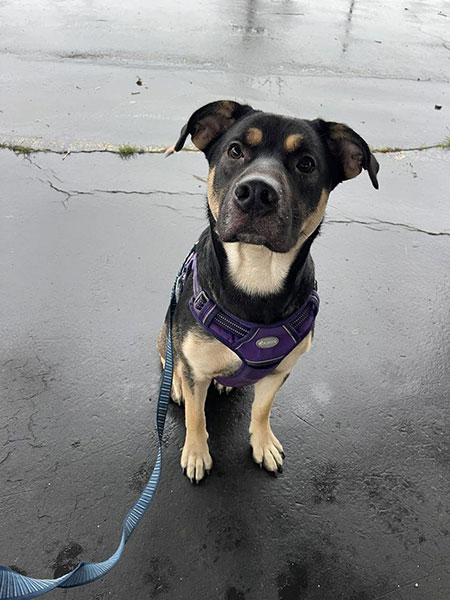
Posts such as this are frequent on Concordia neighborhood social media groups, when animals (mostly dogs and sometimes cats) are found in parks and neighbor- hoods. These animals pull at our heart strings and elicit a slurry of responses from concerned neighbors.
What steps should be taken when finding a lost animal? Multnomah County Animal Shelter (MCAS) employee Jay LeVitre helps answer this and other questions: if you find a dog without an owner, you have a few options. You can carry a leash and try to capture the dog yourself. If that doesn’t feel safe, you can call Troutdale- based MCAS at (503) 988-7387 and an officer will come to help capture the dog. If you want to care for the captured dog at home (instead of bringing it to MCAS), follow the steps explained on the MCAS website at multcopets.org/found-pet.
If the dog does not have a tag, you can take the dog to a vet to have it scanned for a microchip; a free service that all vets provide. MCAS also recommends filling out a found report on their website and sharing information on local social media groups, such as Next Door, Buy Nothing, Being Neighborly, PawBoost, and Petco Love Lost. If you want to keep the dog you find, there is a 180-day waiting period to allow time to find its owner.
According to Levitre, MCAS takes in 12-16 animals every day. More animals tend to get lost in summer, versus winter months because in summer, people spend more time outside with their animals, leave animals in the yard or have windows open in the house where animals can escape.
Since the decline of the pandemic, shelters have experienced a “10-year high” in numbers of animals both locally and nationally and, Levitre thinks this is due to “a direct correlation between economics and high numbers, particu- larly due to housing instability.”
When an animal comes to MCAS, it is first checked for a license and then goes through a brief intake process to collect information used for a found report. An animal with a license is held for six business days during which every effort is made to contact and find the owner. After six days (or three days without a license), shelter staff evaluate the animal. It is then either readied for adoption, put in foster care, or transferred to another shelter, such as the Oregon Humane Society. Of the 300 or so total animals MCAS currently has in its care (dogs, cats, rabbits and other species), about 150 of them are in foster care.
For dogs and puppies that were found between July 2022-June 2023, 33% were adopted, 45% were returned to their owners, 13% were transferred to other agencies or rescues and 9% were either euthanized or died in care, LeVitre says.
On a recent tour of MCAS, led by long-time volunteer and now employee Bud Garrison, the compact shelter was bustling with activity. Volunteers were carefully folding recently-washed blankets and walking dogs on nearby tree-lined trails, animal care staff were conducting wellness checks with new arrivals, and an MCAS officer was preparing to go on patrol. Bright, colorful dog toys lay neatly stacked in piles and a refrigerator was packed with care- fully prepared Kong toys stuffed with cottage cheese, peanut butter or pureed pumpkin.
“Volunteers are the heart and soul of the MCAS operation and we could not function well without them,“ says LeVitre.
If you are interested in helping dogs in Multnomah County, consider volun- teering at MCAS. More information can be found at multcopets.org on the “Volunteer at the Shelter”page.
Jordana Leeb is a longtime Concordia resident who i s passionate about the neighborhood, its residents and trees. She lives with her partner and rescue dog (found as a stray) on a street she calls home. You can see a film about her street and Concordia at TinyURL.com/Diaryofastreet